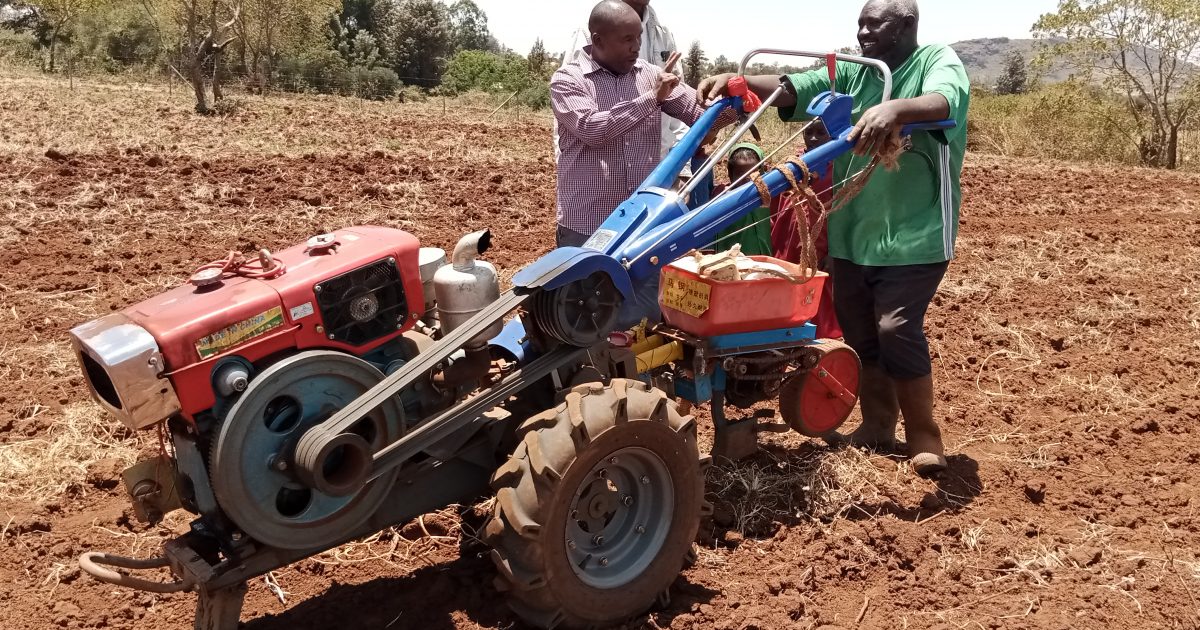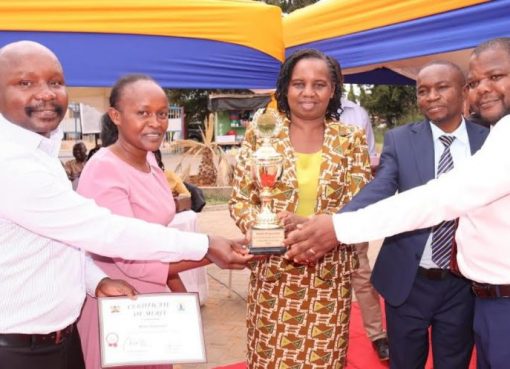Youths in the country have been encouraged to embrace Agribusiness not only as an avenue of job creation for them but also to ensure food security in the country.
Nakuru County Executive Committee Member (CECM) for Agriculture, Fisheries and Livestock Mr Leonard Bor said there was enormous unexploited potential in agriculture which the unemployed youths could take advantage of to eke a living.
He said while the formal economy could only absorb less than 10 per cent of labour-market entrants, there was need to encourage young entrepreneurs to embrace agribusiness as it was a far less saturated market and a potentially rewarding venture.
With an aging population of farmers, Mr. Bor said it was becoming paramount that the agriculture sector invests and engage more youngsters through incentives that could attract them to the sector.
Speaking during the 14th Rift Valley Institute of Science and Technology (RVIST) Agribusiness EXPO 2023 held at its Njoro Main Campus, the CECM observed that agriculture was not just a means of income generation, but also a path to financial independence as it could create resilience and empower the young people to become business leaders within their communities.
While calling upon the youth to consider agriculture as a viable income-generating activity as the sector remains one of the most profitable yet least explored across the country, Mr Bor said his department had initiated various campaigns aimed at promoting agriculture as an intellectually stimulating and economically sustainable career while making jobs in the agriculture and food system attractive to youths.
“Agriculture has been an ‘ageing’ sector. According to United Nations Development Program (UNDP)- Kenya, the average age for the Kenyan farmer is 60 years. Opportunities to reverse this trend especially post-Covid-19, lies in reframing agriculture and shifting attitudes,” stated the CECM.
The County administration, Mr. Bor disclosed, was collaborating with various stakeholders to undertake continuous campaign programmes that included mentorship, providing marketing education, extension services, offering of affordable but high-quality farm inputs, offering seminars and on-farm field days to the youth.
While acknowledging the role of technology and innovation in making agriculture more accessible and sustainable, especially for the youth, Mr Bor indicated that enhanced extension services and technology platforms could help make farming attractive to youth.
This is done by providing analysis and information about the best seed varieties for different environments, which inputs are required, where farmers will avail the best market prices and the best routes to market thereby improving the whole value chain of activities contributing to a more productive agriculture sector.
He noted that Governor Susan Kihika’s administration and various players in the agricultural sector were encouraging youthful farmers to embrace technology to drive impact and scale.
Digital Agriculture Tools (DAT)for weather information, crop production and access to markets, he added, are providing young farmers with tools and information to make informed decisions and improve productivity.
He called on policymakers at the national level to develop innovative financing concepts, strategies to identify and fund sustainable agriculture projects and platforms to identify young people interested in agriculture and agribusiness.
The RVIST Agribusiness EXPO is held annually to provide a platform for farmers to access quality information, guiding them towards best farming practices to boost productivity in agribusiness.
A report by Heifer International published in May 2021, titled Future of Africa’s Agriculture shows that 59 per cent of youth interviewed in Kenya indicated access to land as an impediment to pursuing agriculture.
Despite having a large expanse of agricultural land, the report says less than eight per cent is used for crop and food production and less than 20 percent of the land is suitable for cultivation.
“Access to land or ownership is a major cause of concern as 59% of youths surveyed indicated they lack both. Stakeholder engagement with governments to provide access to land, tax waivers and fiscal policies that deliberately support youths in the sector should be a component of every program,” the report read.
Heifer Kenya Country Director George Odhiambo notes that there is low adoption of technology within the agricultural sector which is affecting productivity and at the same time suppressing potential.
By Esther Mwangi





